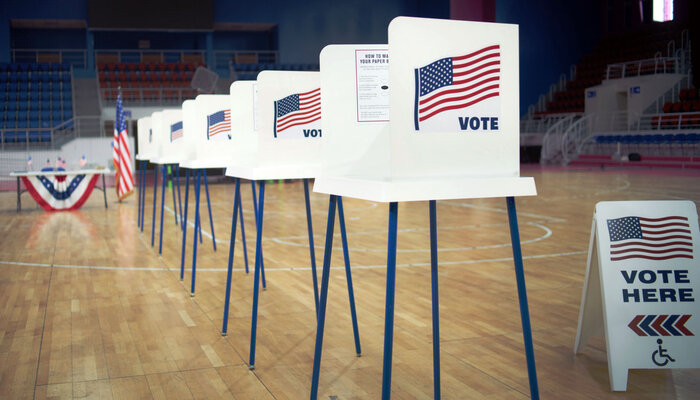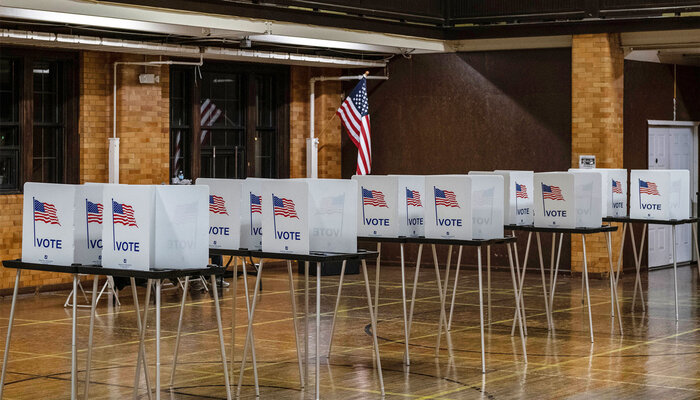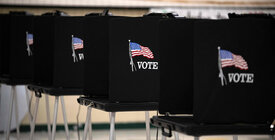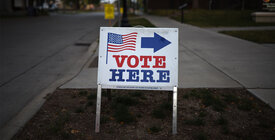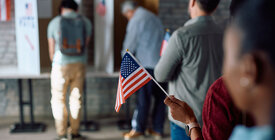In recent weeks, state officials in Alabama, Ohio, and Virginia announced extreme measures to ensure that only citizens are voting, even though there is not a scintilla of evidence that noncitizen voting is a problem. And they’re doing it just days before the election, even though they and their ideological allies have been trying to scare people with this conspiracy theory for months. Why now?
This isn’t about election integrity. Quite the opposite. It’s a cynical attempt to discourage participation by legal immigrant voters, to sow chaos, and to prime voters for a second round of lies about a stolen election. And in the case of Virginia, on Wednesday, the Supreme Court put a sensible lower court ruling on hold. As a result, eligible Virginia citizens will be purged from voter rolls.
In Virginia as well as Alabama, state officials have attempted to remove thousands of voters from the rolls on suspicion that they are noncitizens. To be clear, state officials have the right and obligation to maintain accurate voter rolls. But if there was any reason to doubt the eligibility of these voters, they should have been contacted and given the opportunity to prove their citizenship status long before Election Day. By waiting until just weeks before voting began, election officials risked disenfranchising legitimate voters.
As part of a Justice Department lawsuit over the attempted purge, election officials in Alabama checked their work and found egregious errors. As the federal judge hearing that case noted, Alabama’s secretary of state “admitted that his purge list included thousands of United States citizens.” And it’s not yet clear whether any of the voters purged were actually noncitizens.
Because of the risk of exactly this kind of mistake and the resulting disenfranchisement, federal law prohibits purges like this in the 90 days before a federal election. For that reason, federal judges have ordered the reinstatement of the challenged voters in both Alabama and Virginia.
Virginia appealed to the Supreme Court. This should be an easy case: Virginia election officials have not proven that even one single person among the 1,600 voters they removed from the rolls at the 11th hour is a noncitizen. Yet the radical conservative supermajority has come down on the side of a conspiracy theory.
Meanwhile in Ohio, this month Secretary of State Frank LaRose ordered local election officials to demand citizenship papers from naturalized citizens at the polls and to discard their votes if they don’t return to the office with those papers within a few days.
Aside from being xenophobic and discriminatory, this last-minute change of policy is flatly illegal. We know this because 18 years ago, the Brennan Center obtained a permanent injunction against precisely this policy. In response to the new policy, the Brennan Center and our partners went back to court to enforce the original court order. On October 30, the judge denied our motion to block the new policy but kept in place the injunction, barring the revised form from being used for anyone except voters who show a driver’s license with a “noncitizen” marker when voting in person.
LaRose’s policy is a solution in search of a problem. Despite combing through many years of voting records, Ohio officials have been able to identify only six possible noncitizens who cast votes in Ohio between 2008 and 2020. Even if every one of those cases is proven, that’s less than one noncitizen vote in a million in any given election.
While LaRose’s order will not improve election integrity, it will certainly disenfranchise eligible voters. The secretary didn’t even bother to announce the new policy publicly, meaning that naturalized citizens weren’t put on notice that they should carry their citizenship papers to the polls.
Although human errors can happen, states have multiple systems in place to deter noncitizen voting. Those who violate the law face prison time and deportation. There is no need to risk disenfranchising thousands of eligible voters in an attempt to stamp out the vanishingly few and ultimately meaningless handful of cases of noncitizen voting.
Ask yourself: If noncitizen voting were really a problem, why do the efforts to solve it end up disenfranchising eligible voters and breaking the law? The truth is our elections are safe and secure.




